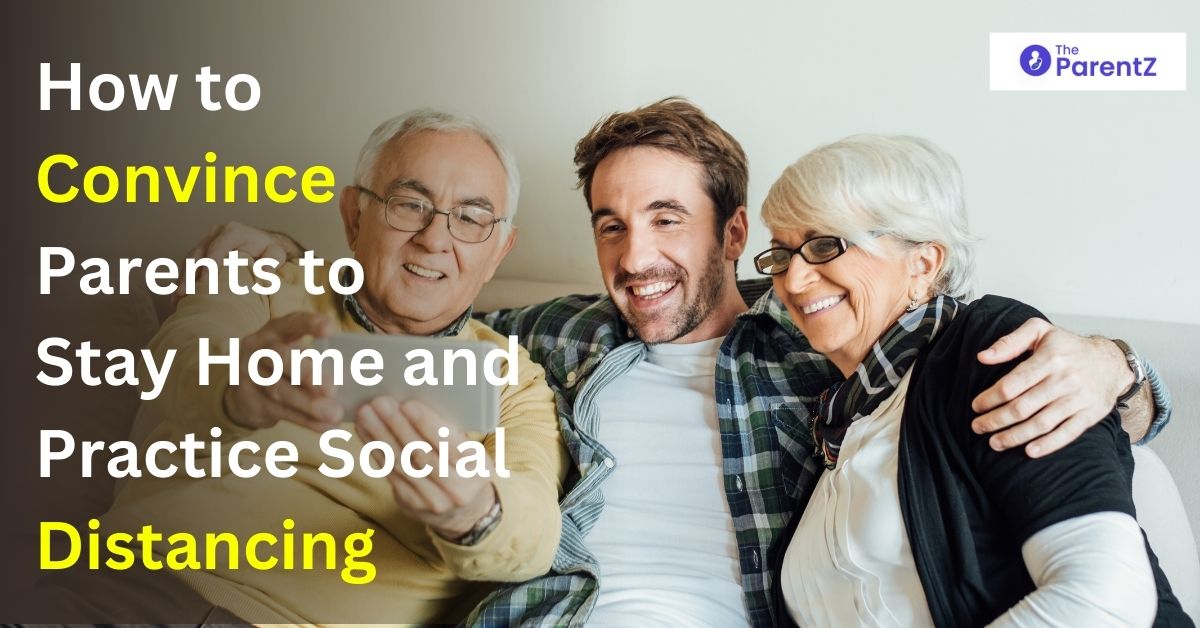Soon after public health officials confirmed the first cases of Covid-19 in Texas, I called my parents on Skype from India to check in. While mom knew about the virus, she also shared she’d just returned from the grocery store. My mind immediately raced with questions as she recounted her day: Did she wear a mask? Did she wear gloves? Did she keep her distance? Of course not, but to be fair, at that point, few people in rural East Texas were taking such precautions.
She didn’t express any concern about the virus, but she did want to know how we were doing and was worried about how the virus might affect us. What? My mom is 71, and my dad is 72 years old! Despite their age and existing health issues, they were worried about us! That’s the Boomer Generation for you: more worried about their children than themselves. However my parents are in the most vulnerable of demographic groups, and their unselfishness doesn’t ease the concern and worry of my three siblings and me.
Changing roles from child to parent isn’t easy. Nor is it easy for our parents. We are all scared and concerned for our family and friends, especially those who may be more susceptible to Coronavirus Covid-19. Some parents take the necessary precautions prescribed by epidemiologists. I’ve also heard from several friends with parents similar in age that it’s become a challenge to convince their parents to stay at home as much as possible and practice social distancing whey they do go out. In this blog, I will lay out some reasons why it may be difficult for some parents to stay home, and tips to help convince them to listen to the experts and take care of themselves.
10 Tips to Help You Talk to Your Parents About the Coronavirus
1. Why Aren’t My Parents Taking Covid-19 Seriously?
The first tip is to ask ourselves, why aren’t my parents taking the pandemic seriously? One place to start is to consider our parent’s past. My dad survived the Vietnam War. He also has several health issues that put him at higher risk. Both my parents grew up in households that went through the Great Depression. Both of my parents also lived through the global polio outbreak. Their perspective and life experience with the Coronavirus is different than mine.
A good, open-ended question we can ask our parents is whether they have been through an experience like this before. The more we consider their past and point of view, the easier it becomes to frame questions to get the answers we need. A few examples to consider include:
- Perhaps our parents feel physically great?
- Perhaps our parents are more accepting of their mortality than we are?
- Maybe they are getting the wrong information about the pandemic?
- Are their friends taking the pandemic seriously?
- Perhaps they’re not ready to change places with you, with you now being the parent and advising them on how to live their life?
Whatever the answers might be, let’s make sure we stay open to what they are feeling, their current and past perspective. Let’s also remember that their peers are likely not reacting to the pandemic like your peers. A friend recently shared with me how their parents and their parents’ friends complain their kids are trying to manage their lives.
2. Consider the Dynamics of Changing Roles
Do you remember when Darth Vader says to Obi-Wan in Episode 4 of Star Wars, “The circle is now complete. When I met you, I was but the learner. Now, I am the master.” And Obi-Wan replies, “Only a master of evil, Darth.” Well, I don’t mean to be dark, but another tip to consider is maybe our parents aren’t ready to change roles with us.
And if we are honest, some of us aren’t ready to play the parent role to our own parents either. The Coronavirus has forced many sons and daughters to question their parents’ actions since the outbreak. We all need to recognize that while this dynamic is bound to change as our parents grow older, many of our parents may be in good shape and don’t need our help yet. But when our parents share with us that they forgot an ingredient and had to go back to the market, it can be challenging to keep our cool and explain why they need to stay home without sounding harsh or condescending to our parents.
3. It’s Difficult to Give Up Control
An essential tip is to consider how we humans, at any age, like having routines and being in control. Completing errands, buying what they need, visiting with friends, seeing the grandkids, going to church or temple, walking around the block with a neighbor, these are all examples of routines our parents controlled before the pandemic. Activities that likely helped our parents relieve stress and manage their anxiety. Not being able to do these activities now can exacerbate the isolation and loneliness that many seniors already feel.
My dad needs a walker to get around the house. A few months back, he bought himself a scooter to help him get around. After learning about the purchase, we four siblings shared in a group chat our feelings and concerns about the purchase. We were asking ourselves questions like: is the scooter dangerous, how much did it cost, will it fit in the trunk of mom’s car, did they buy a quality scooter, is he now going to depend on the scooter instead of getting the exercise he needs? As you can see, we had a lot of questions and no control over the situation. Months later, we have found that both mom and dad sound happy about their purchase. It’s given my dad a renewed sense of control, being able to get around, go outside and explore the property, in a way he hasn’t been able to do in years.
Does your own kid ever give you that look, a roll of the eyes maybe, when you ask them to put their toys away? A facial expression reminds you of how you felt as a kid when your parents asked you to complete a task you didn’t want to do. That is the feeling of control that our parents are used to having over their lives. Losing that feeling of power is what freaks us out when our parents decide to keep their weekly coffee date with their senior friends. Before we talk to our parents, we must consider what losing control feels like for them. We know what it feels like for us. That’s an excellent place to start.
4. Validate Their Feelings
When we talk to our parents about the pandemic, another tip is to listen, imagine what they must be feeling, and let them know you hear them. When we react strongly to the news that our parents kept their weekly dinner with their friends, we are not considering how important that weekly date might be in their lives. Be proactive in guessing how they might feel and empathetic to what this experience must be like for them. Share your own feelings about your personal loss of control, to help them share theirs. We must take a deep breath and consider why this is important to them, what an activity like this provides our parents, and with kindness, love, and understanding, then respond.
5. Appeal to Their Emotions
For some data-driven parents, listing statistics like the mortality rate for people over 70, might just be the critical piece of information to trigger them to take precautions. Another tip is to appeal to their emotions. For many, this approach will be more persuasive.
- Be Honest—Be honest about your feelings. If you are scared, worried, fearful, concerned about how they are conducting their lives, let them know.
- Be Clear—Be clear about what you are worried about. When we react without thinking through what we want to communicate, our parents might miss our point.
- Protecting Others—Remind your parents that staying home and practicing social distancing not only protects them but also protects others if our parents unknowingly transmit the virus.
6. Share What You Are Doing to Stay Safe
A great tip you can use without having to confront your parents directly is to share all the different ways you are keeping you and your family safe. As parents of our parents, we run the risk of nagging to the point of our parents ignoring us. But if we share how we are following stay-at-home and social distancing guidelines, we remove blame, anger, and other emotions that can potentially distract us from the most critical point—everyone being as safe as possible.
So, let your parents know how you are feeding the family. Do you have a particular way to sanitize packages after they arrive? Are you keeping up with your best friend from college? Can you help your parents set up their first Skype call? Are you wearing a mask when you go out in public? Can you order masks and gloves to be delivered to your parents? If you have kids, share how their grandparents are keeping themselves safe.
7. Use the Grandchildren
While your parents may not be worried about themselves, they’re likely concerned about you or at least the grandchildren. Depending on how old your children are, if they are older, they are probably aware that seniors and vulnerable populations like the homeless and those with chronic medical conditions are the most likely to be admitted into a hospital.
I read about one dad who made sure his kids knew how important it was for their grandparents to stay home and practice social distancing. So while on a Skype call with their grandparents, without any prompting from their dad, the grandchildren laid down the rules that their grandparents were not to leave the house unless absolutely necessary, have their groceries delivered, and practice social distancing when they had to go out in public.
It’s also important to remember that our parents are at a higher risk from anyone they come into contact with, including their grandchildren. Refusing to allow your parents to visit their grandchildren helps drive home the point that this is an easily transmissible disease, one that is often asymptomatic.
8. If John Wayne were Alive, Would You Change Your Mind?
This specific tip, mentioning John Wayne, is for my dad. Unless it’s John Wayne or Clint Eastwood, I’m not sure he is willing to take anyone’s advice. Except his own, of course.
Sometimes, that’s just the way it is. I’ve heard some people cite Tom Hank’s advice to stay home and practice social distancing to their parents and having some success. Who are your mom and dad’s heroes? Maybe there’s a quote or advice they’ve shared publicly that would both inform and persuade your parents to protect themselves. Perhaps there’s a family member, or a close friend, who is protecting him or herself, you could ask to talk to your parents.
To help persuade my dad in the past, my siblings and I have conspired to align our calls home to reinforce a message we need him to consider. There are four of us, so try to wear them down if you have the numbers. Or, if you can put yourself through it, be persistent. Tell your parents you’re not getting off the phone until they agree to start having their groceries delivered.
9. Help Them Find Accurate Information
While it can be frustrating, maybe the best tip and the most help we can provide our parents are updates of what scientists are learning about the virus, and the latest recommendations on how to stay safe. Three sites I highly recommend include:
10. Ask Open-Ended Questions
A final tip to help you understand what your parents know about the virus and how they’re community and friends are reacting to the virus is to ask open-ended questions. A few examples include:
- What do you think about the virus?
- Have you experienced anything like this before?
- Do you have any advice for us?
- What are your friends saying about the virus?
- How are your friends adapting?
The only way to know how to help your parents is to understand what they know, how they’re conducting their lives, and who is influencing their decisions.
Humor, Sarcasm, and Letting Go
In the heat of the moment when your parents are telling you not to worry, and they are going to do what they want to do, when they want to do it, let go. After the tenth time your dad tells you he never gets the flu, let go. Or after being sarcastic when your mom shares she just had to go back to the store to pick up Diet Coke because they only had a six-pack left, let go. They, like you, are adults. And they are free, no matter how irresponsible their choices might be, to make their own decisions on how to live their lives. In the end, we only need them to know that we’re worried about them, thinking about them, and love them.









Be the first one to comment on this story.